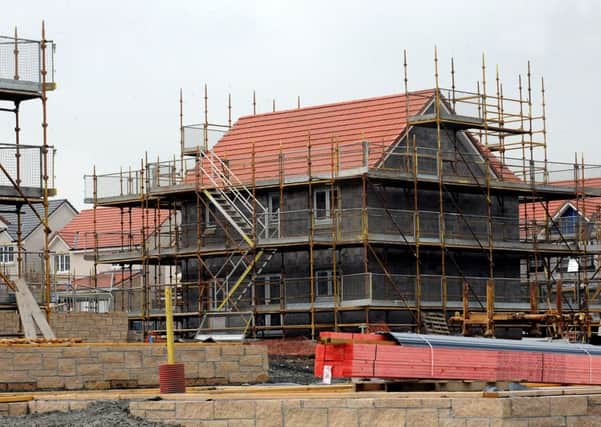Construction sector output shows signs of recovery
This article contains affiliate links. We may earn a small commission on items purchased through this article, but that does not affect our editorial judgement.


The closely-watched Markit/Cips construction purchasing managers’ index (PMI) hit 49.2 in August, up from 45.9 in July and above economists’ expectations of 46.5. A reading above 50 indicates growth.
The update follows a surprise swing in manufacturing output in August, notching up its highest monthly rise in a quarter of a century.
Advertisement
Hide AdAdvertisement
Hide AdConstruction activity recorded its fastest fall since June 2009 in July as uncertainty over Britain’s decision to ditch the European Union triggered a steep fall in commercial building activity. However, business activity only recorded a marginal fall in August, as new order volumes “moved closer to stabilisation”.
Today’s report said the rate of contraction in housing activity and commercial building was the slowest for three months, while civil engineering was stable after falling in July. The returning strength to industry also filtered through to employment, with staffing levels recording a small expansion in August, while the use of sub-contractors continued to decline.
However, sterling’s plunge to 31-year lows since the Brexit vote has ramped up costs for construction firms, as input cost inflation grew for the third month in a row and hit its highest level for five years.
Business confidence also rebounded from a 39-month low in July, but was still close to the lowest level on record for the past three years.
Tim Moore, senior economist at Markit, said the survey only highlights “a partial move towards stabilisation” and not a return to “business as usual” for the construction sector.
He said: “The downturn in UK construction activity has eased considerably since July, primarily helped by a much slower decline in commercial building. Construction firms cited a nascent recovery in client confidence since the EU referendum result and a relatively steady flow of invitations to tender in August.”
Moore said there were still widespread reports that Brexit uncertainty was dampening demand, with total new order volumes continuing to fall in August, adding: “Despite another month of reduced output, the latest figures can be viewed as welcome news overall after a challenging summer for the construction sector.
“The move towards stabilisation chimes with the more upbeat UK manufacturing PMI data for August, and provides hope that the near-term fallout from Brexit uncertainty will prove less severe than feared.”
Advertisement
Hide AdAdvertisement
Hide AdThe construction industry’s better-than-expected PMI comes after official figures published last month showed the industry had fallen back into recession for the first time in four years. The Office for National Statistics (ONS) said construction output dropped by 0.7 per cent in the second quarter, following a 0.3 per cent fall in the first three months of the year, meaning the industry recorded two consecutive quarters of negative growth for the first time since 2012.
Despite the fall, strong consumer spending helped the economy expand in the run-up to the EU vote in June. The ONS confirmed last week that gross GDP grew by 0.6 per cent in the second quarter, up from 0.4 per cent in the first three months of 2016.
Howard Archer, chief UK and European economist at IHS Global Insight, said August’s PMI still points towards a struggling construction sector.
“There is certainly not the bounce back in construction activity in August that was seen in the manufacturing sector according to the purchasing managers,” he said.
“Nevertheless, the near-stabilisation in construction activity in August reported by the purchasing managers following on from manufacturing activity bouncing back to a ten-month high adds to the mounting evidence that the economy has so far held up pretty well following June’s Brexit vote.”
Archer said that, while the economy is holding up well, there is concern it will lose momentum in the coming months as uncertainty rises over when Article 50 will be triggered.
